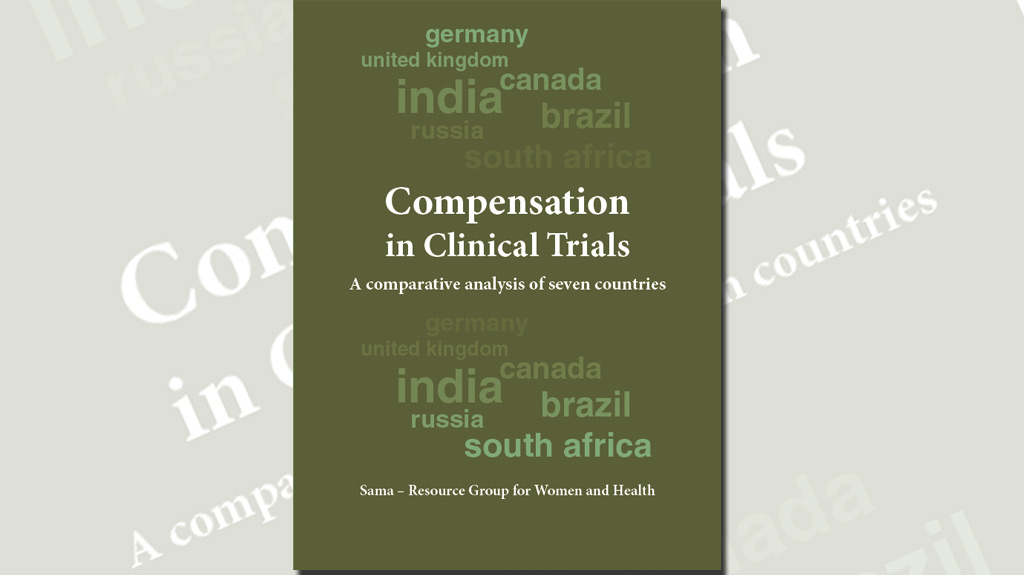 2016 | Sama
2016 | Sama
This report is based on Sama’s study which undertook a comparative analysis of compensation mechanisms for clinical trial related injuries or deaths for seven countries – Brazil, Canada, Germany, India, Russia, South Africa and United Kingdom. The study was conducted during 2015-2016.
Since the 1980s, with the emerging trend of the globalization of clinical trials, the discourse on compensation for trial-related injuries has acquired global significance. The Majority of drug trials until the 1980s were conducted in North America and Europe. This practice began to change in the 1990s with the fragmentation of drug development process, rise of contract research organizations (CROs), and the World Trade Organisation’s imposition of uniform Intellectual Property Rights regime across the world. Even though most clinical trials continue to take place in high income countries of North America and Europe, there is a growing trend of outsourcing it to low or middle income economies such as India, China, Brazil and South Africa. The rapid growth of clinical trial sector in low or middle income countries and the concomitant rise in cases of ethical violations leading to serious adverse events including deaths underlined the need to put in place regulatory mechanisms and ethical guidelines to safeguard the fundamental rights of vulnerable trial participants.
The study sought to systematically review compensation mechanisms for clinical trial-related injuries in India and other countries for the purpose of gauging inter and intra country processes, and highlighting new areas for deliberations; and to understand the ways in which these legislations have garnered public and state support especially in terms of implementation and safeguarding the rights of clinical trial participants. The study was an exploratory secondary research focused on the theme of compensation for clinical trial injuries in addition to exploring the country’s socio-economic and political context; public health context; the history of clinical trials; regulatory authorities and other actors associated with clinical trials; type and nature of insurance for clinical trial participants etc.
The report highlights that the nature and evolution of clinical trial regulations and compensation mechanisms for trial-related injuries are shaped by socio-economic, political, legal and health context of a particular country. All the countries included in this study have incorporated ethical principles laid down in international guidelines such as the Declaration of Helsinki for conducting research on human subjects, which recommend fair and just compensation for trial-related injuries or deaths. However, most often there are no concrete mechanisms to ensure compensation to trial participants, who suffer injuries. Every country, included in this study, has compensation policies on paper albeit with vague directions for implementation and different ways of interpreting and operationalising the compensatory mechanism.



